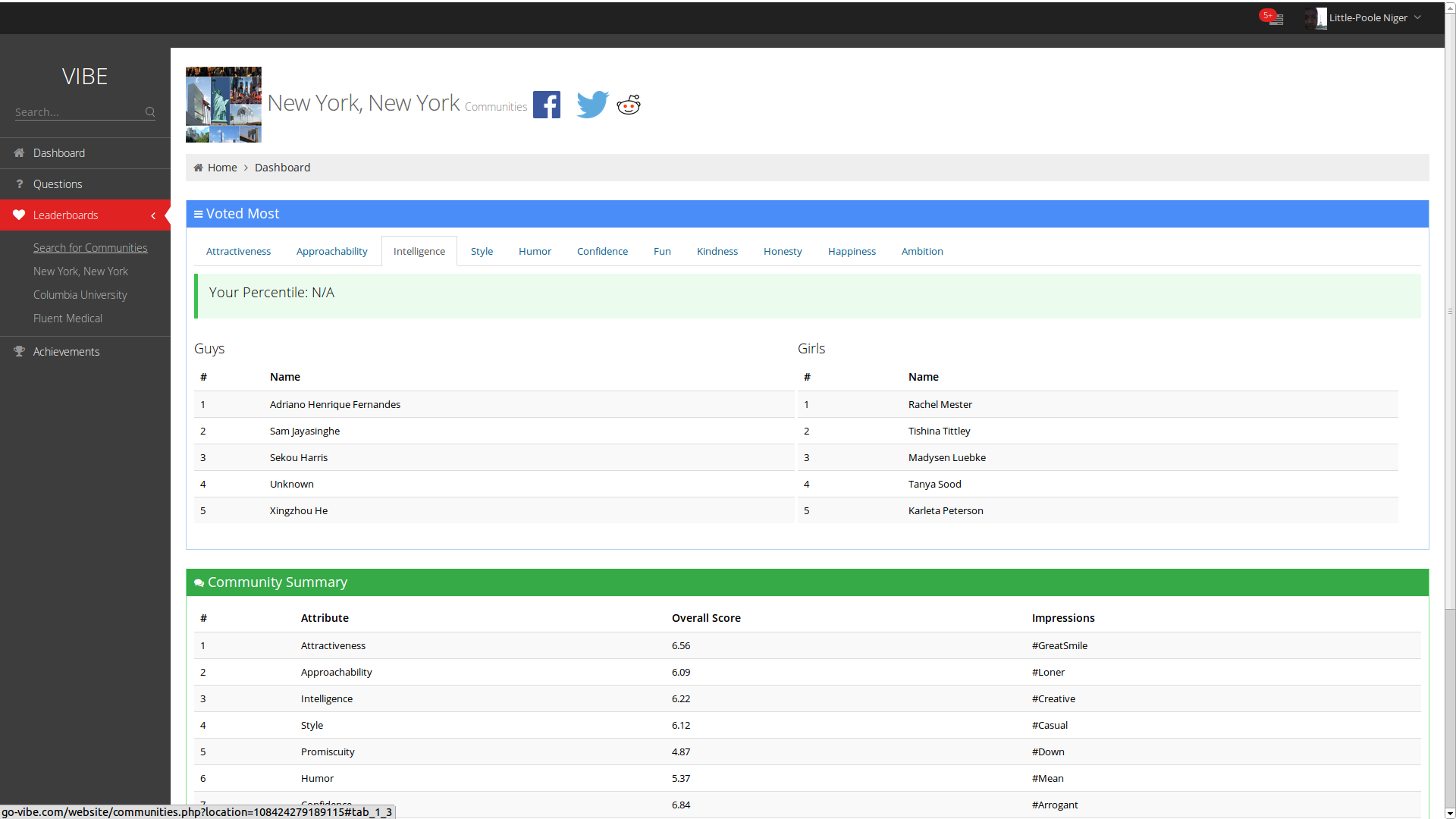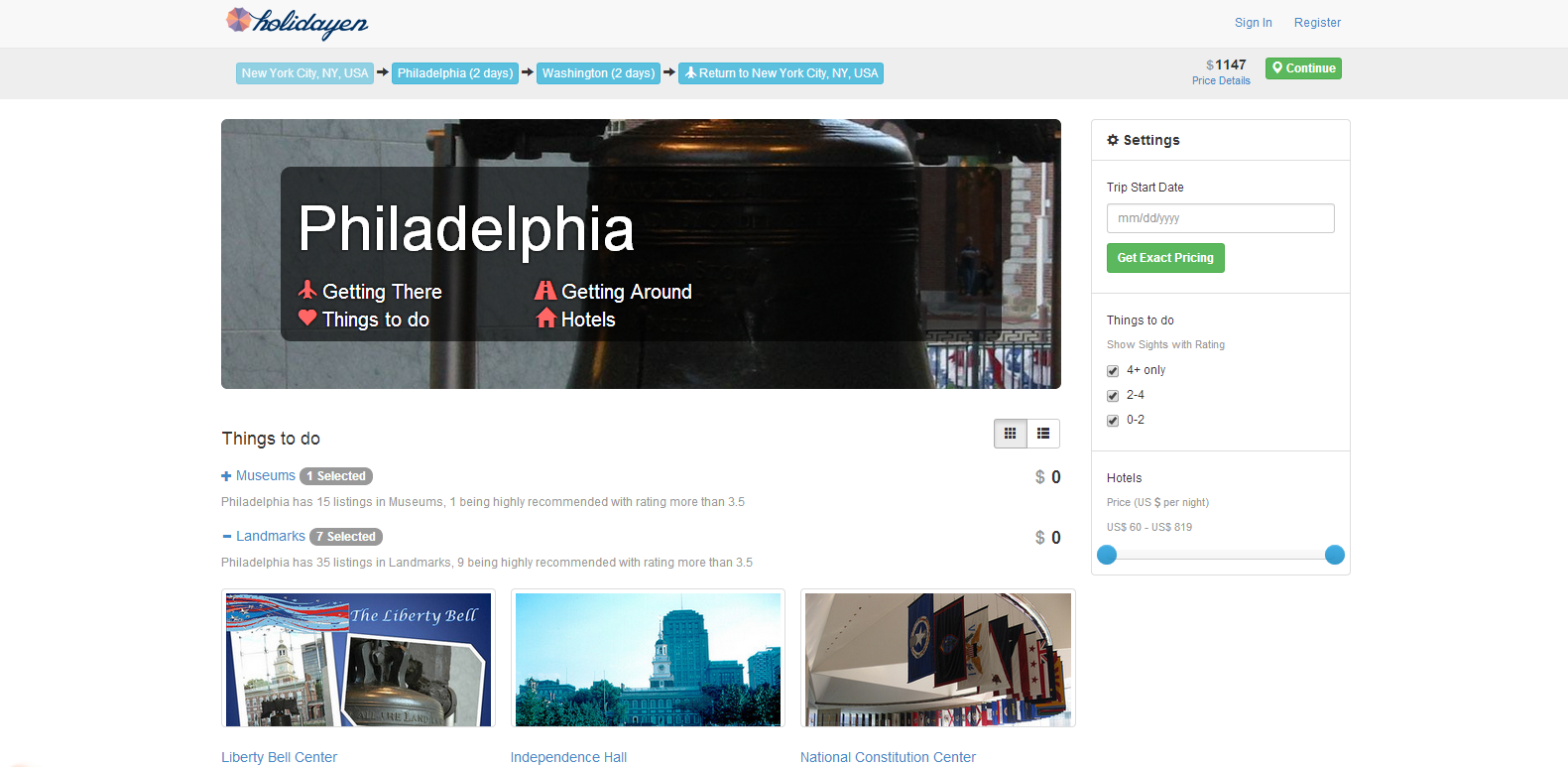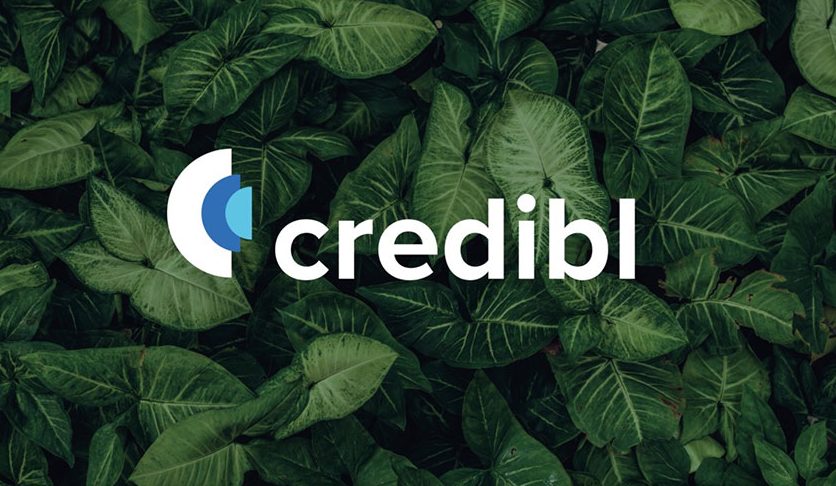 By Niger Little-Poole, Vibe co-founder
By Niger Little-Poole, Vibe co-founder
Elevator Pitch: Vibe is a social directory. The web app processes the information gathered by users to create Vibe scores for everyone in the network. Vibe quantifies perception and impression. Based on the questions that users answer, Vibe can determine how individuals are perceived in their communities.
Product Description
Vibe has two uses—a personal and an interpersonal. On a personal level, users can view their vibe scores and see how others perceive them. While perception is not truth, the perception others have of you is still very important. If you are intelligent, but no one you work with believes you are intelligent, you still have a problem. No one is going to promote someone who they don’t feel is intelligent or competent.
Vibe can also be used as a feedback service to see where one could work on improvement. While not all perception is truth, there is truth to perception. If 100 of your friends believe you to be self-centered, there is probably some truth to that (or you need better friends!). Vibe exists not to make individuals feel insecure or bad about themselves, but rather as a tool for self-improvement and empowerment.
 Vibe is also a directory. Users can look up an individual to see how others have experienced relationships with that individual. A woman, before she gets into a relationship, can look up a man to see if he is considered honest, kind, intelligent, or any other trait that she finds to be important. While that individual’s Vibe score is not meant to determine her decision, it allows her to make a more informed decision.
Vibe is also a directory. Users can look up an individual to see how others have experienced relationships with that individual. A woman, before she gets into a relationship, can look up a man to see if he is considered honest, kind, intelligent, or any other trait that she finds to be important. While that individual’s Vibe score is not meant to determine her decision, it allows her to make a more informed decision.
The Vibe directory also contains information about the many communities that users belong to. Having a raw Vibe score doesn’t tell the user that much. Vibe’s community data allows users to see how they compare to other users in their community. We stress that this feature is not to be used in order to make people feel the need to compete with others. We envision a user using this data to see how well he/she might fit into a potential community. A user could use this to see if they would fit into a particular university or work environment based on the perceived personalities of other members. While this is not a perfect science, again the goal is to allow users to make more informed decisions using the data we have collected.
Vibe communities also contain leaderboards on who are perceived to be the top people representing certain ‘Vibes.’ We believe that people should be recognized for being, for example, extremely kind. These top individuals in a community can act as role models to those hoping to improve certain ‘Vibes.’
Founders’ Story
Vibe was created because Noah wanted a way to see how he was being perceived during interviews and dates. He was concerned that the way he was coming across was different than the way he saw himself. At HackMIT last year we created a prototype for Vibe, originally a simple feedback system.
We realized that a simple feedback system wasn’t useful enough, and for such a social tool it wasn’t very social. Noah and I concluded that Vibe needed to be a public directory, not just a private feedback system. By making the system public, we could create the ‘Yelp of people’; a system that would allow people to leave feedback about their friends so that others who might engage with them would know what they were getting into before they engage.
Vibe is a social network, and as such its potential market size is as large as there are people. While the social networking space already has a lot of players, none of them are offering the service that Vibe does. Vibe is a free service that allows users to find information they intrinsically want—what other people think of them. Vibe’s monetization potential comes from the ability to mine the user base to find out what people like and dislike. A clothing brand will be able to use Vibe data to determine what the people who are considered most attractive are wearing. This is invaluable information that existing social networks cannot provide. With an eventual goal of eventually making $1 per user with a user base of about one million, Vibe can make $1 million a year in data services. With a strong user base, the earning potential of Vibe is tremendous.
Business Model
At the moment, Vibe has no revenue. However, Vibe can be monetized once a user base has been established. The data gained from Vibe has tremendous potential. Any advertiser would love to know what kind of people are considered the most stylish or attractive so that they can improve the content of their ads, especially if this data can be given based on location or other demographics.
Current Needs
Our plans are currently to expand the user base and constantly improve the content of our questions and effectiveness of our backend algorithms. Vibe is now live in public beta, and we are starting to grow our user base beyond our private beta phase. So, our primary concern is getting users to use the service so that we can test the effectiveness of our system and get user feedback.
# # #
 Headquarters: New York City
Headquarters: New York City
Website: www.go-vibe.com
Founders: Niger Little-Poole, Noah Stebbins
Investors: Bootstrapped
Year Founded: 2013
Employees: 2
Facebook: facebook.com/pages/Vibe/541382979302292













